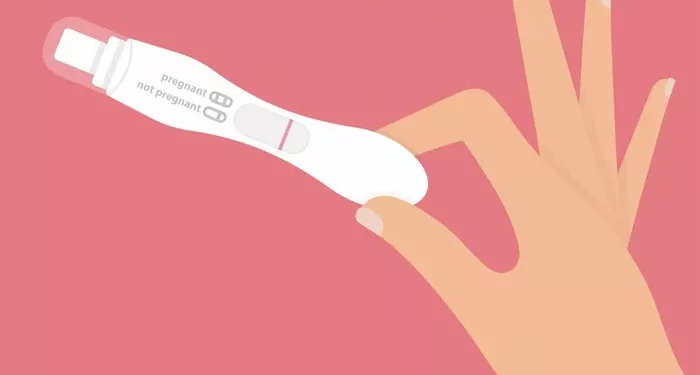A urine pregnancy test is a common and convenient method used to detect the presence of the human chorionic gonadotropin (hCG) hormone, which indicates pregnancy. These tests are designed to provide women with early information regarding their pregnancy status, which is crucial for early prenatal care and informed decision-making.
Accurate pregnancy test results are essential for several reasons. Early detection allows for timely initiation of prenatal care, which can significantly impact the health of both the mother and the developing fetus. Furthermore, knowing whether one is pregnant can help in making necessary lifestyle adjustments and planning for the future. Understanding the optimal timing for taking a urine pregnancy test and how to maximize its accuracy is vital for obtaining reliable results.
Timing for Optimal Accuracy
While many home pregnancy tests claim to offer early detection, the most accurate results are typically obtained after a missed period. This recommendation is based on the biological processes that occur after conception.
The Role of hCG in Pregnancy Detection
Human chorionic gonadotropin (hCG) is a hormone produced by the placenta shortly after the fertilized egg attaches to the uterine lining. The levels of hCG increase rapidly in the early stages of pregnancy, doubling approximately every 48 to 72 hours. However, this rise in hCG levels only becomes detectable in urine a few days after implantation.
Implantation generally occurs around 6 to 12 days after ovulation, which coincides with the timing of a missed period in a typical 28-day menstrual cycle. Testing for pregnancy before this point can result in a false negative because the hCG levels may not be high enough to detect.
Early Testing and False Negatives
Early testing is a common temptation for those who are eager to know if they are pregnant. However, testing too soon after conception often leads to false negatives due to insufficient hCG levels in the urine. Waiting until after a missed period significantly increases the likelihood of detecting pregnancy accurately. For those with irregular cycles, it is advisable to wait at least 21 days after the last unprotected intercourse before taking a test.
Maximizing Test Accuracy
To maximize the accuracy of a urine pregnancy test, certain best practices should be followed. These practices help ensure that the concentration of hCG in the urine is at its highest possible level, thereby improving the test’s sensitivity.
See also: How to Track Ovulation with PCOS
Morning Testing
It is recommended to take the pregnancy test first thing in the morning. Morning urine is more concentrated because it has accumulated in the bladder overnight without being diluted by fluid intake. This higher concentration of urine increases the chances of detecting hCG if it is present.
Timing and Fluid Intake
If taking the test later in the day, it is advisable to wait at least three hours after the last urination and to limit fluid intake during this period. This helps maintain a higher concentration of hCG in the urine. Excessive fluid intake before testing can dilute the urine, potentially leading to false negative results.
Following Test Instructions
Each home pregnancy test comes with specific instructions that should be followed meticulously. These instructions typically include details on how long to hold the test strip in the urine stream or how much urine to collect in a cup. Additionally, the instructions will specify the amount of time to wait before reading the results. Deviating from these guidelines can compromise the test’s accuracy.
Interpretation of Results
Interpreting the results of a urine pregnancy test correctly is crucial for understanding one’s pregnancy status. Most home pregnancy tests use a simple visual indicator, such as lines or symbols, to show positive or negative results.
Positive Results
A positive result typically appears as a distinct line or symbol in the test window. Even a faint line can indicate pregnancy, as any detectable hCG signifies that pregnancy has likely occurred. However, it is essential to confirm the result with a healthcare professional, especially if the line is faint or unclear.
See also: What Are the Typical Signs of Ovulation?
Negative Results
A negative result usually means no line or a single line indicating the absence of hCG in the urine. If a period is still missed despite a negative result, it is advisable to retake the test a few days later. Hormonal variations or testing too early can sometimes lead to false negatives.
Consulting Healthcare Professionals
Regardless of the result, consulting a healthcare professional is recommended for confirmation. A healthcare provider can perform a blood test, which is more sensitive than a urine test and can detect pregnancy earlier and with greater accuracy. Additionally, healthcare professionals can provide guidance and support for the next steps, whether it involves prenatal care or further investigation into menstrual irregularities.
Conclusion
The timing of taking a urine pregnancy test is critical for obtaining accurate results. While early detection is appealing, the highest accuracy is achieved after a missed period due to the biological increase in hCG levels post-implantation. To ensure reliable results, it is best to test with the first morning urine, follow the test instructions precisely, and consider consulting a healthcare professional for confirmation. Alternative pregnancy confirmation methods, such as blood tests, offer additional accuracy and should be considered if there is any doubt about the results of a home urine test.
Early and accurate detection of pregnancy is paramount for timely prenatal care and making informed decisions about one’s health and future. By understanding the optimal timing and methods for taking a urine pregnancy test, individuals can better navigate the early stages of pregnancy with confidence and clarity.
Related Topics:
What You Need to Know: Irregular Periods and Fertility



























